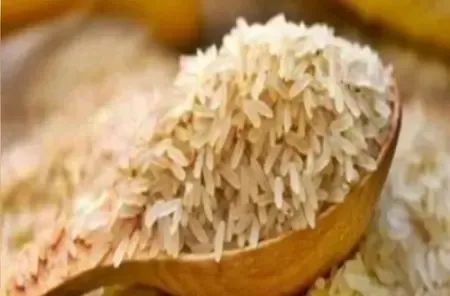Does the Centre Have Surplus Stocks of Rice and Wheat to Mitigate Inflation?

Synopsis
Key Takeaways
- Centre's surplus stocks of rice and wheat exceed buffer norms.
- Stocks are **736.61 lakh MT**, aiding in controlling inflation.
- Open Market Sales Scheme enhances food availability.
- Bharat Atta and Bharat Rice launched for subsidized consumer access.
- Stock limits imposed to prevent hoarding and speculation.
New Delhi, July 22 (NationPress) The Centre currently possesses surplus stocks of rice and wheat, surpassing the buffer norm necessary for the public distribution system and social welfare programs aimed at assisting the economically disadvantaged, as reported in Parliament on Tuesday.
As of July 1 this year, the Centre's total stock of rice and wheat stands at 736.61 lakh metric tonnes (MT), significantly exceeding the buffer stock requirement of 411.2 lakh MT for these two grains, stated Minister of State for Consumer Affairs, Food and Public Distribution, Nimuben Jayantibhai Bambhaniya, in a written response to the Rajya Sabha.
Specifically, rice stocks amount to 377.83 lakh MT, far beyond the buffer norm requirement of 135.40 lakh MT, while wheat stocks reach 358.78 lakh MT, exceeding the buffer stock requirement of 275.80 lakh MT, she elaborated.
The minister further clarified that these excess stocks are utilized to counteract rising prices by enhancing the supply of foodgrains in the market to tackle inflation effectively.
"To help stabilize market prices and improve the availability of foodgrains, the Union Government sells surplus wheat and rice beyond the requirements of the Public Distribution System (PDS) and other welfare schemes for the underprivileged via open market sales under the Open Market Sales Scheme. This initiative contributes to increasing foodgrain availability, controlling inflation, ensuring food security, and making food more affordable for the general populace," she stated.
Moreover, Bharat Atta and Bharat Rice were introduced on November 6, 2023, and February 6, 2024, respectively, to supply atta (wheat flour) and rice to consumers at subsidized rates as part of the open market sales strategy, the minister noted.
Additionally, to maintain overall food security and curb hoarding and unscrupulous speculation, the Union government has enacted stock limits on wheat applicable to traders, wholesalers, retailers, large chain retailers, and processors across all states and Union Territories.










